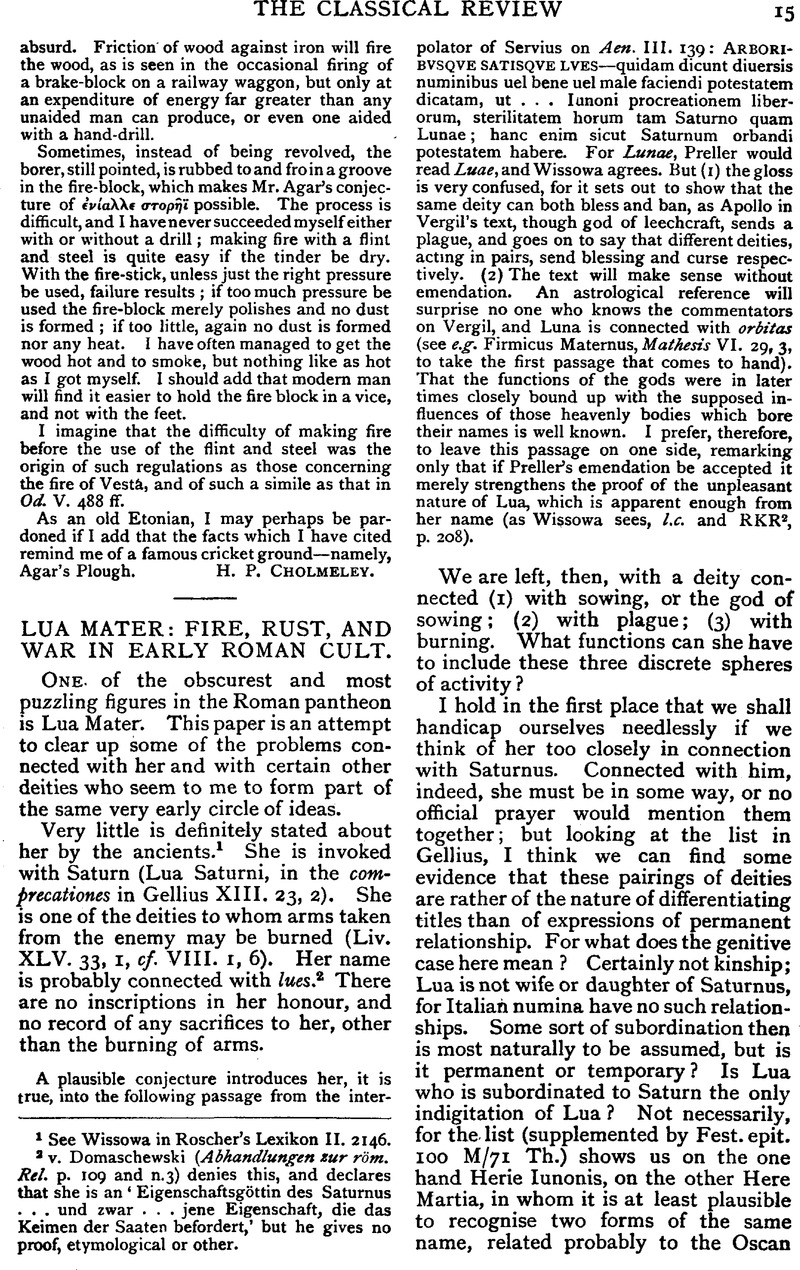Article contents
Lua Mater: Fire, Rust, and War in Early Roman Cult
Published online by Cambridge University Press: 27 October 2009
Abstract

- Type
- Review Article
- Information
- Copyright
- Copyright © The Classical Association 1922
References
page 15 note 1 See Wissowa in Roscher's Lexikon II. 2146.
page 15 note 2 v. Domaschewski (Abhandlungen zur röm. Rel. p. 109 and n.3) denies this, and declares that she is an ‘ Eigenschaftsgöttin des Saturnus hellip; und zwar … jene Eigenschaft, die das Keimen der Saaten befordert,’ but he gives no proof, etymological or other.
page 16 note 1 Minerua is not an indiges, and so is out of place here. But cf. Appian, Punica 133, which, following Polybios no doubt, names Athena. Livy obviously draws upon the same author in the abovepassage, and we may rectify the mistake by supposing that Polybios explained Nerio by Athena, in the latter's capacity as a war-goddess Cf. Wissowa, RKR2, pp. 148, 208.
page 16 note 2 Tert., I.c., mentions Mars in this connection; Numa Pompilius Marti et Robigini fecit; but this is, apparently, a mere slip.
page 17 note 1 Much harm has been done by scholars in trying to force all kinds of sacrifice into one formula, whether gift, communal meal, godeating, or simple magical rite. All these interpretations have their value, and Idoubt if we can say that one is more primitive than another. For the world in general certainly, for many individual peoples probably, several causes have been at work.
page 18 note 1 For a not dissimilar idea, see Plut. quaest. Rom. 37, and Jevons' introduction to his edition of Philemon Holland's translation, p. lxxxi.
page 18 note 2 Fast. V. 726.
page 18 note 3 Diod. Sic. V. 52, 2.
page 18 note 4 Horace A. P. 465; Luc. de mort. Peregr. 29.
page 18 note 5 Hont. Hymn, in Cer. 239 ff.; Plut. de Is. et Os. 357 c; Lykophron 178–9. Cf. Dussaud,Intr. a l'Hist. des Rél., p. 179.
page 18 note 6 Virg. Georg. I. 80.
- 2
- Cited by


